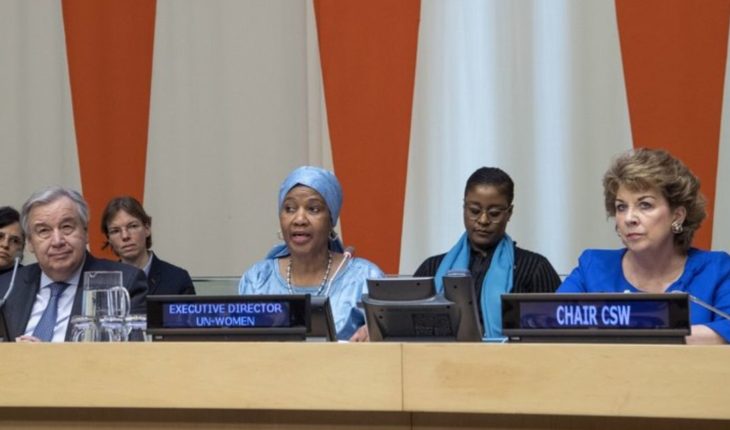United Nations (AP) – the technological revolution should be used to benefit the poorest in the world, especially women, who will not achieve gender equality without “the great leap that p You may provide the innovations of the 21st century”, said the Director of the UN Agency for women. Phumzile Mlambo-Ngcuka said in an interview and in a speech before the annual meeting of the Commission on the status of women, which starts Monday, to sanitation, drinking water, good roads, affordable access to the internet and the use of cell phones for transfer money and pay bills are critical to change women’s lives.” We have made progress towards gender equality. We have more women in important roles, but we are still leaving many, many women behind,”said the Executive Director of UN women. “Sometimes even lose the progress we had made. And that is why we are emphasizing the importance of innovation and technology.” If the technology and innovation are not used to promote equality for women, from agriculture and finance education and health, he added, the “fourth Industrial Revolution” of the rapid technological change will happen “and women remain in the” industrial revolution prior, who also worked very well for them”.” The good news is that there are solutions that we know for many of the problems that we have today”, said Mlambo-Ngcuka.senalo affordable internet service and the use of”mobile money”through cell phones, which is changing the lives of women in Kenya of the same as micro-credits have allowed that hundreds of thousands of women in developing countries to start businesses. In some Nations, ‘mobile money’ can be used to pay for water supply or purchasing power, “so it is not a luxury having this type of infrastructure”, said Mlambo-Ngcuka.destaco that 80% of women in low-income countries or media have cell phones and “would be a historic mistake to not make a deliberate use of these technologies to advance gender equality”.
“The bad news is that although there are solutions, not are taken into account in its entirety, even as it reduces costs,” said Mlambo-Ngcuka.
The main challenge in the implementation of the UN target of achieving gender equality by 2030 is the need to accelerate the pace and scale of actions, he said. Infrastructure is one of the barriers and the reason, he said, are a key point on the agenda of the Commission on the status of women, which will meet for two weeks. Another challenge is to end violence against women, he added. The #MeToo movement has helped to expose the prevalence of bullying and sexual abuse and showed that there are consequences, and has caused changes in some organizations and institutions, it said. According to Mlambo-Ngcuka, social networking technology has been which has given women a platform to demonstrate against these behaviors. But further efforts are needed to change bad legislation and implementing good laws against sexual harassment, abuse and domestic violence, he said. Looking to the future, Mlambo-Ngcuka said that the world must accept that, at the current pace, is they will take more than 200 years to achieve gender equality.
This means that “only the grandchildren’s grandchildren will achieve gender equality”, which he described as unacceptable. “Without international action, this slow and continuous rhythm is a real risk.”





